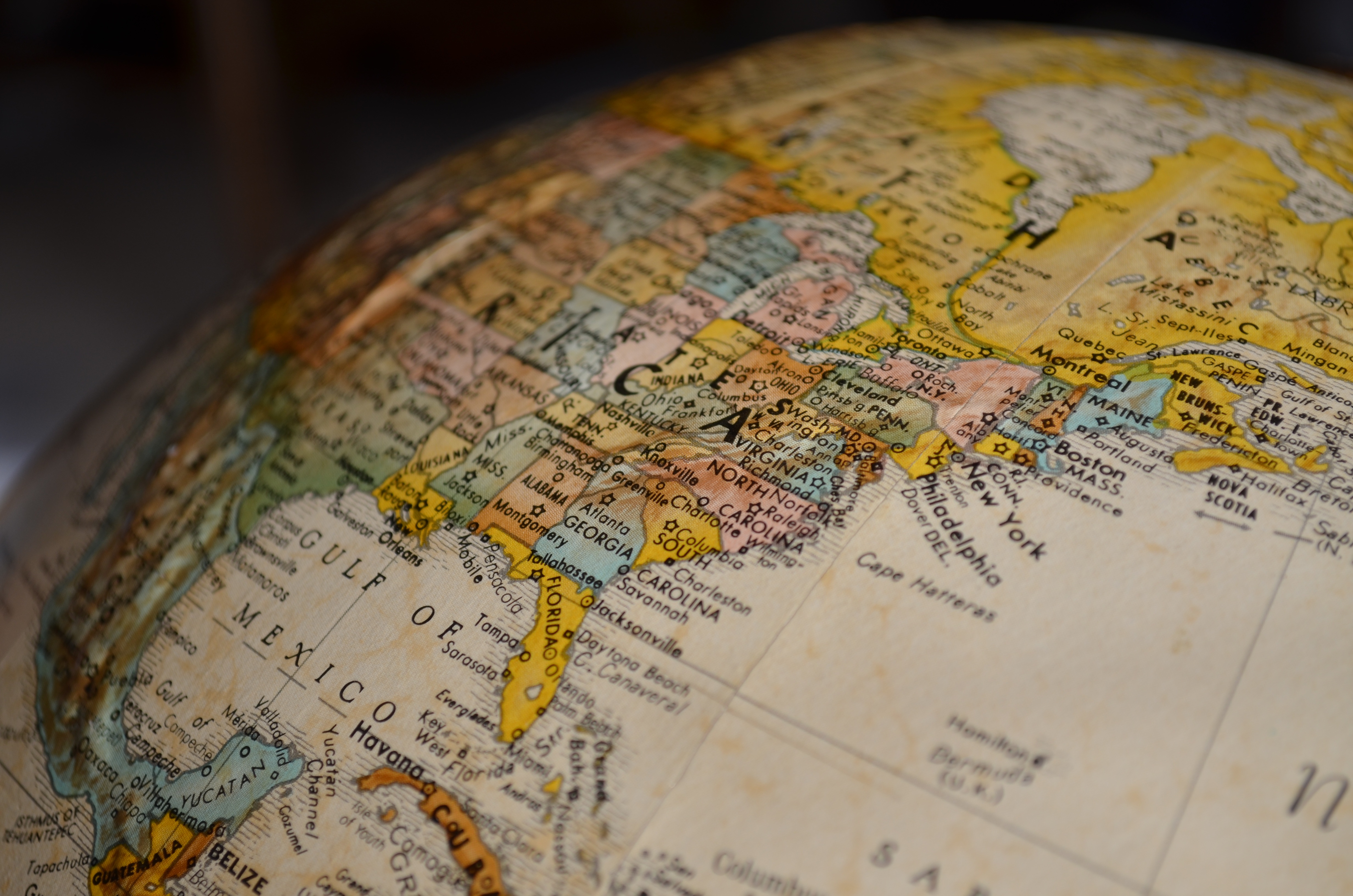Unilateral Coercive Measures: Effects and Legality Issues
Alena F. Douhan
Today the world is experiencing an enormous expansion of unilateral sanctions, in various forms: comprehensive, sectoral, targeted, economic, financial, cyber, primary and secondary, as well as civil and criminal charges for circumvention of sanctions regimes. This mushrooming of sanctions has had serious humanitarian effects and poses thorny questions of international law. This piece discusses the classification of unilateral coercive measures, identifies their harmful humanitarian consequences, and highlights some of the ways in which they likely violate rules of treaty and customary international law.
The types of unilateral coercive measures
Contemporary unilateral sanctions practice, including both economic and non-economic, and targeted and non-targeted measures, challenges traditional distinctions between the types of sanctions regimes. Today, a large part of this discussion is outdated as many unilateral sanctions have broad multi-sectoral impacts regardless of their form.
In particular, economic sanctions can be understood as referring to all types of restrictive measures which may have an economic impact on the entire population of the targeted country, a sector of its economy, a specific company or individual, or even a non-designated individual or company (including those in third countries). Quite often economic sanctions employ non-economic or non-financial means. Economic sanctions thus can include, but are not limited to: freezing bank accounts and property of the central bank and other banks, states, companies and nationals; preventing countries from obtaining emergency and development loans from the World Bank or the International Monetary Fund; prohibiting the nationals and companies of a country under sanctions, as well as other companies and nationals doing business in the country, from engaging in trade in general, in specific spheres of industry, or with specific companies, goods or individuals; restricting trade of goods containing more than a given percentage of components or technologies produced in the sanctioning country; imposing travel and financial restrictions on high state officials, which can prevent relations or trade with an entire sector of the economy or infrastructure including food, health, and water supply; cutting off countries or their banks from SWIFT, thus preventing or limiting financial transactions for the entire population; prohibiting the movement of money from / to the targeted country, its nationals, and companies, even for non-designated goods, including food and medicine; issuing threats with secondary sanctions, including civil and criminal penalties for circumvention of primary sanctions regimes; and blocking access to online payment instruments and fundraising platforms for study, research, or humanitarian purposes.
Given this context, the reference to the targeted character of specific sanctions is misleading. For example, after the United States government targeted the Venezuela state-owned oil and gas company Petróleos de Venezuela, S.A. (PDVSA), the Venezuelan state budget lost 99 percent of its external revenue, which crippled social, education, health, and development programs in the country. Meanwhile, despite there being no comprehensive or sectoral sanctions imposed on Zimbabwe, sanctions designating ministers and heads of large companies in the country have in fact affected all sectors of the economy and governance including health, food, and the environment.
The effects of unilateral coercive measures
In terms of effects, several tendencies can be identified in the contemporary use of various types of sanctions. Overall, the United Nations (UN ) Security Council has minimized its use of comprehensive sanctions and uses a very careful approach to targeted sanctions, the list of which is limited to minimize any potential negative humanitarian impact. However, the use of unilateral sanctions without or beyond the authorization of the UN Security Council in various forms is expanding, directly affecting designated individuals, workers of designated companies, and citizens of targeted countries more broadly.
The application and enforcement of the expanding array of unilateral sanctions has caused a number of issues. Confusing and overlapping sanctions legislation, threats of secondary sanctions, civil and criminal penalties, maximum pressure campaigns, broad interpretations of sanctions regimes, reputational risks resulting in the growing fear of sanctions, the risk of losing access to the markets of sanctioning countries, and the prospect of fines and imprisonment, are all contributing to the growth of zero-risk policies by private actors, including banks, delivery and insurance companies, donors, and humanitarian intergovernmental and non-governmental organizations (NGOs). These actors prefer not to engage with anyone related to the countries under sanctions even if such engagement is not explicitly prohibited by sanctions regimes. In other words, contemporary sanctions regimes often lead to over-compliance.
A prominent example of overcompliance is the healthcare sector. Medical equipment and pharmaceutical producers prefer not to engage with any entity from a country under sanctions even though medical goods are usually formally excluded from sanctions regimes. More extensively, due to the broad interpretation of sanctioned state-related entities, often just nationality, the place of registration, or engagement in the public sector are sufficient to trigger a decision not to engage, including for delivery of food, teaching materials, and training for doctors and schoolteachers. Despite the existence of so-called blocking statutes aimed at limiting over-compliance, companies often feel that they lack sufficient protection from their countries of registration.
Unilateral sanctions and accompanying over-compliance have had a devastating humanitarian impact on all categories of human rights of those in targeted countries, including their economic, social and cultural rights as well as civil rights. The affected rights include the right to the highest level of health, freedom from hunger, the right to education, the right to life, and the right to development. Unilateral sanctions disproportionately affect vulnerable groups in the population: people suffering from severe or chronic diseases, poor and marginalized groups, children, women, the elderly, refugees, and internally displaced persons.
Meanwhile, unilateral sanctions and over-compliance also hamper the efforts of targeted countries to achieve the Sustainable Development Goals and to implement their treaty obligations to ensure economic, social and cultural rights and the right to development, which depend on the availability of economic resources for the population in general, as well as specific vulnerable groups. Humanitarian exemptions, exceptions, and derogations, despite being formally provided for in sanctioning documents, are often very confusing, unclear, weak, or ineffective. As a result, these tools provide international organizations and humanitarian NGOs with very limited capacity to deliver food and medicine to targeted countries, often only after a lengthy, expensive, and complicated process. Humanitarian exemptions also exclude any goods beyond food and medicine, including many that are necessary for the maintenance of critical infrastructure, the survival of the population, and development, including clean water and sanitation, electricity, irrigation, transportation infrastructure, seeds, and fertilizers.
The wording of humanitarian exemptions together with threats of secondary sanctions frequently result in over-compliance by the private sector, even in the provision of humanitarian assistance. This undermines the humanitarian principles of NGOs, which bear the burden of proving the “purely humanitarian” character of their deliveries even in natural or human-made emergencies. Unilateral sanctions and over-compliance undermine implementation of UN Security Council decisions aimed at guaranteeing the delivery of humanitarian assistance within the scope of Council resolutions (e.g., Resolutions 2615 of 2021 and 2664 of 2022). Recent regulations by the European Union (EU) and the United Kingdom (UK) to facilitate the implementation of these decisions have not reduced the effects of over-compliance.
Finally, people affected by unilateral sanctions do not have sufficient mechanisms to protect their rights due to the multiplicity of sanctions regimes, the multiplicity of the perpetrators, the unavailability of legal remedies, the absence of available courts, and the impossibility of using UN treaty body complaint mechanisms.
In addition to these humanitarian concerns, the imposition of sanctions against a country tends to isolate the sanctioned country in spheres beyond the economy, such as sports, academia, and culture, and to discriminate against its nationals. For instance, Venezuela lost its voting rights in the UN General Assembly in 2021 for its inability to pay its membership fee due to payment restrictions. Meanwhile, scholars, sportsmen, and artists from Venezuela, Zimbabwe, Syria, Iran, Cuba, and many other countries under sanctions cannot pay membership fees to professional associations, participate in international events, use many online platforms, book flights or hotels, or win international competition prizes. Publishing houses frequently refuse to accept submissions from scholars from sanctioned countries due to the fear that they might violate sanction regimes. For example, if an individual has an IP address associated with a country under sanctions, many companies will restrict her ability to fundraise, even for humanitarian purposes.
Unilateral sanctions and international law
The use of unilateral sanctions and over-compliance requires an in-depth assessment from the perspective of international law, particularly in light of the general obligation of all states to observe their international obligations.
It is generally agreed in international law that the use of pressure by states can only be justified if the means are authorized by the UN Security Council and within the scope of the authorization, if they do not violate any international obligations of states (i.e., they constitute “retortions”), or if their wrongfulness can be precluded under the doctrine of countermeasures, in accordance with the customary law of international responsibility. The majority of unilateral sanctions do not fall under these three categories and can thus be qualified as illegal unilateral coercive measures, condemned in multiple resolutions of the UN General Assembly (Resolutions 69/180 of 2014 and 75/181 of 2020) and the UN Human Rights Council (Resolutions 15/24 of 2010, 45/5 of 2020, and 49/6 of 2022).
I mention here just a few international law obligations that unilateral sanctions and over-compliance potentially violate:
- The immunity of states and state property as regards freezing of the assets of central banks and other property;
- The immunity of high state officials and diplomatic agents, including the obligation to ensure the freedom of movement of diplomatic agents and the obligation to accord full facilities for the functioning of their missions under the 1961 Vienna Convention on Diplomatic Relations;
- Obligations of membership in the World Trade Organization (WTO) and the reasonableness of invoking the GATT national security provisions as a ground for non-performance of these obligations;
- The sovereign equality of states, principle of non-intervention, and principle of peaceful settlement of disputes when (1) unilaterally qualifying other states as state sponsors of terrorism or rogue states, (2) justifying a state of national emergency by reference to situations in third states, (3) announcing maximum pressure campaigns, or (4) extending the jurisdiction of sanctioning states extraterritorially;
- The law of international organizations and principle of international cooperation, when a state’s membership in international organizations is suspended due to the inability to pay membership fees in the face of impediments to financial transactions;
- International humanitarian law and principles of humanitarian work of NGOs as concerns the fear of reprisals from sanctioning states, and the fear of donors, delivery and insurance companies, and online platforms of sanctions enforcement;
- Multilateral agreements in the sphere of freedom of correspondence (Bern Convention on Postal Relations of 1874), civil aviation (Chicago Convention of 1944), freedom of maritime navigation (UN Convention on the Law of the Sea of 1982), and many other multilateral and bilateral treaties;
- The obligation of states to exercise due diligence and ensure that business activity under their jurisdiction and control does not affect human rights, including extraterritorially, under the UN Guiding Principles on Business and Human Rights, as a means to avoid or minimize zero-risk policies and over-compliance;
- The obligation of states to protect and promote human rights, which is to be applied in both internal and foreign policies (no assertion of good intentions or unintended humanitarian consequences of unilateral sanctions or over-compliance has any ground in international law); and
- Access to justice and to legal remedies for states under sanctions, directly designated or non-designated companies and individuals affected by unilateral sanctions and over-compliance.
Steps forward
Given the many harmful effects of unilateral sanctions, how can individuals and states respond, and work to promote the rule of law and protect human rights? Today the on-the-ground record is rather limited. We have a few cases proceeding in the International Court of Justice, International Criminal Court, and WTO about the consequences of economic sanctions, submitted by Qatar, Iran, and Venezuela. No case on human rights violations has been brought to the UN treaty bodies due to the challenges of identifying who has violated international law with respect to human rights obligations, the requirement to exhaust national remedies in specific areas, and other jurisdictional requirements.
I am often asked whether unilateral sanctions can be taken as the last proportionate resort in situations of blatant international law violations and where the UN Security Council fails to act. I strongly believe that all states must adhere to the principles of international responsibility of states for international wrongful acts. Naturally, a violation of erga omnes obligations provides for the possibility of every state to react to this violation. But any response must strictly comply with the limitations laid out in the Articles of Responsibility of States on Internationally Wrongful Acts. The measures must be proportionate to the violation and should not violate any peremptory norms of international law or human rights standards. Unfortunately, as discussed above, this is not the case for the vast majority of unilateral sanctions.
Today, states attempt to qualify unilateral sanctions as the better choice against “bad actors,” as compared to the use of force—but without presenting any legal justification. Moreover, state decision-making on the use of unilateral sanctions has become very rapid, with low standards of proof and virtually no access to justice for affected individuals and companies. States now impose unilateral sanctions under the pretext of criminal responsibility without any presumption of innocence or fair trial standard. Meanwhile, states also impose sanctions, including civil and criminal penalties, on third-country nationals and companies, which constitute an illegal exercise of extraterritorial jurisdiction.
Unfortunately, the humanitarian impact of unilateral sanctions remains largely unassessed even today. Although countries that impose sanctions claim their targeted nature, the absence of negative impacts on human rights, and the sufficiency and effectiveness of humanitarian exemptions, recent evidence points to the opposite conclusion. As discussed in this piece, and others in this Symposium, unilateral sanctions affect a range of human rights of the broader population, especially among the most vulnerable. That is why as a UN Special Rapporteur, upon consultations with scholars and humanitarian actors, I have taken the initiative to develop a uniform and universal sanctions assessment methodology to collect and verify information about the impact of unilateral sanctions. We hope that this tool will lead states to reduce or eliminate their reliance on unilateral coercive measures in the future.
In conclusion, unilateral sanctions are generally not an appropriate or legal tool to respond to any third-state behavior in the absence of UN Security Council resolutions. The majority of unilateral sanctions do not qualify as either retortions or counter-measures and are therefore illegal under international law. Together with over-compliance these measures have a detrimental effect on the international obligations of states and human rights. To make matters worse, existing humanitarian exemptions are ineffective and inefficient. Therefore, states should immediately lift unilateral sanctions not in accordance with international law, and, going forward, conduct preliminary assessments of any planned sanctions activity to check its compliance with international law and identify any possible negative humanitarian impact.
Alena Douhan is the UN Special Rapporteur on unilateral coercive measures.
This piece is part of a Symposium on Third World Approaches to International Law & Economic Sanctions.




3 Responses
[…] The contributions of Joy Gordon and Jessica Whyte draw out the inhumanity of modern sanctions and the inability of international law as it currently stands to operate as an effective counterweight against the human suffering inflicted by sanctions. They also show that economic sanctions are a good example of how the much-debated “return of the state,” especially in the Global North, need not lead to fairer outcomes for the South, especially its more vulnerable populations. Nevertheless, the interplay between the state and private economic actors raises important questions for our understanding of the “public” in public international law. In her intervention, Alena Douhan, who is currently serving as UN Special Rapporteur on the negative impact of the unilateral coercive measures on human rights, explores how over-compliance by private actors renders humanitarian exceptions to sanctions ineffect…. […]
[…] Legalidad», es el título del artículo de Douhan que circuló el 20 de junio en la publicación Yale Journal of International Law, una revista fundada en 1974 de la Facultad de Derecho de la Universidad Estadounidense […]
[…] sanctions, coupled with widespread over-compliance and ineffective humanitarian exemptions, has led to serious human rights violations in targeted countries, thus violating international law. As she writes, “Confusing and overlapping sanctions legislation, threats of secondary […]